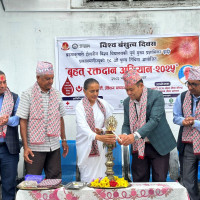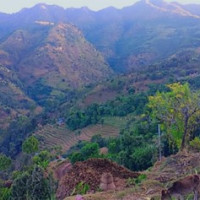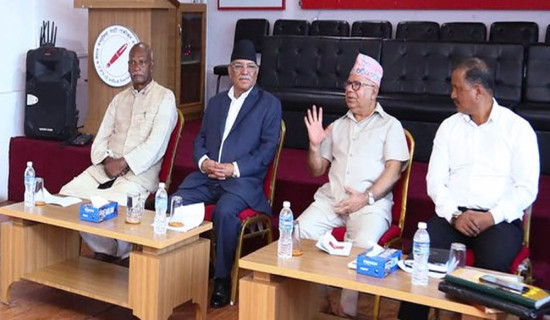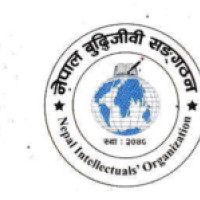- Saturday, 23 August 2025
502,576 movie-goers visit Cine Royal of Nepalgunj in two years
By Sijan Khan,Nepalgunj, July 29: With the construction of a state-of-the-art cinema theatre in Nepalgunj, more movie-goers have started watching films in halls.
Until years ago, the old cinema halls that were in operation had to shut down after movie-goers stopped visiting them. However, with the development of a modern cinema building equipped with new technology, moviegoers have returned to the theaters.
The newly constructed advanced movie theater in Nepalgunj, Cine Royal, has succeeded in attracting a large number of audience. Not only Nepali audience, but also a significant number of Indians are also seen visiting hall to watch films.
On the occasion of Cine Royal’s second anniversary, Managing Director Dr. Rahul Thapa said during a programme that more than 500,000 people watched movies at Cine Royal in the past two years, with Nepali films being the most viewed.
He claimed that it was the construction of the technologically advanced theater, built with a large investment that brought audience back to the cinema halls in Nepalgunj.
At a time when audience’s interest in films had declined due to the internet and mobile phones, the Cine Royal theatre built using the latest technology has managed to draw people back to movie halls, said Managing Director Dr. Thapa.
In the span of two years, a total of 502,576 audience watched films at Cine Royal, during which 206 Nepali films and 247 Hindi films were screened.
During this period, the Nepali film Purna Bahadurko Sarangi became the highest-grossing Nepali film, watched by 38,462 people. Meanwhile, the Hindi film Pushpa-2 was the most viewed Hindi film, drawing 31,097 in the hall.
Although Hindi films have traditionally dominated the Nepalgunj market, recently Nepali films have broken that trend and set new records.
According to Cine Royal, films such as Pradeshi, Ghar Jwai, Purna Bahadurko Sarangi, Unko Sweater, and Anjila ran in theaters for more than 51 days, setting a new benchmark.
Cine Royal, now a brand name of Nepalgunj, is also planning to expand to other cities like Kathmandu and Pokhara, said Managing Director Dr. Thapa.















